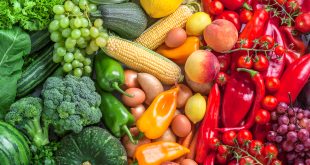Who is the sector’s consumer and what’s driving the market’s growth?
By Richard Baker
We consume foods for many reasons: for basic physiological needs, for sensory pleasures, and for the social occasions it facilitates. Increasingly, especially throughout the pandemic, consumers have focused more intensely on foods and beverages that contribute to their health and wellness, with a strong emphasis on functional foods and beverages. During the pandemic, 4 in 10 consumers purchased such products. This emphasis is solidified by McKinsey & Co’s Future of Wellness survey which revealed that 79% of worldwide consumers believe that wellness is important, with 42% considering it a top priority.
Consumers are increasingly taking their health into their own hands. They understand the correlation between food and health and seek foods and beverages that will help them more aggressively meet their unique nutrition and personal health goals.
The Canadian functional food and beverage market is projected to reach $19.2B by 2026, growing at an anticipated Compounded Annual Growth Rate of 6.3% between the period 2021-2026. Functional food ingredients that support better sleep, reduce stress and improve focus are in demand and driving product innovation.
Interestingly, the strongest demand for functional food and beverages is from consumers under the age of 55. They are more aware of and utilize products that offer functional benefits. Shifting demographics are positioning this market for sustained growth, as Millennials and Gen Z are already the most engaged demographic in functional product usage and are significantly more focused on foods that support both mental and physical well-being. Those consumers over the age of 65 also represent opportunities to grow the audience for this sector.
When asked “which were the reasons” for purchasing functional food and beverages, the immune system (58%), and healthy bones and joints (46%) were the top two responses, followed by digestive health (43%), heart health (40%) and improved energy (39%).
Given the fact that the interest in health and wellness has never been higher, let’s take a more in-depth overview of the top five responses for purchasing functional foods and beverages:
- Immune System Health: Consumers are seeking protection against illness and disease, from COVID-19 to the common cold and other ailments in between. Consumers seek products that are rich in nutrients and present a great flavour. 70% of global consumers have changed their diet and lifestyle in a bid to improve their immunity.
- Healthy Bones and Joints: As we age, the risk of bone and joint issues such as osteoporosis and rheumatoid arthritis increases. This is the main concern for mature adults over the age of 51 and clean label products, as well as products that offer preventative health, are in high demand.
- Digestive Health: Consumers associate good digestive health with overall wellness. Strong digestive health allows the body to properly break down food and absorb nutrients to keep the body healthy. Consumers with strong digestive systems are less likely to experience heartburn, bloating, and indigestion.
- Heart Health: Your heart is a muscle and strengthens with exercise. Three keys to a strong heart include 1) weight loss, 2) the consumption of heart-healthy foods, and 3) the reduction of stress levels.
- Improved Energy: Consumers seek products to boost struggling energy levels. One in three consumers report feeling tired and lacking energy. Seven in 10 consumers seek out food and drink to boost their energy level.
While the pandemic may have accelerated this trend, dramatically impacting the way in which consumers view wellness, with a stronger emphasis on “better” health, fitness, nutrition, appearance, sleep, and mindfulness, functional foods are proving to be no flash in the pan. And, as today’s consumer continues to evolve, it seems we’re collectively allowing food to be our medicine and medicine to be our food.
 Canadian Food Business
Canadian Food Business



